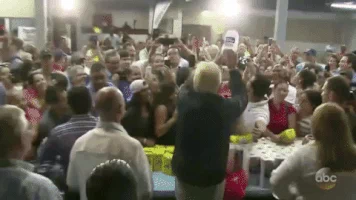E.A. CRUNDEN
 The Federal Emergency Management Agency (FEMA) will end food and water aid to Puerto Rico despite the island’s ongoing struggles, NPR reported on January 31. Officials have argued that the immediate humanitarian crisis following Hurricane Maria has ended.
The Federal Emergency Management Agency (FEMA) will end food and water aid to Puerto Rico despite the island’s ongoing struggles, NPR reported on January 31. Officials have argued that the immediate humanitarian crisis following Hurricane Maria has ended.More than 130 days after the Category 4 hurricane slammed into Puerto Rico, FEMA will “officially shut off” its mission to the island, giving Puerto Rican officials any remaining supplies before leaving.
“The reality is that we just need to look around,” FEMA Puerto Rico director Alejandro De La Campa said. “Supermarkets are open, and things are going back to normal.”
“If we’re giving free water and food, that means that families are not going to supermarkets to buy,” he continued. “It is affecting the economy of Puerto Rico. So we need to create a balance. With the financial assistance we’re providing to families and the municipalities, they’re able to go back to the normal economy.”
Puerto Ricans might contest that assertion.
In the months since Maria hit, islanders have struggled without electricity, potable water, fully-functioning hospitals and schools, and a number of other basic necessities.
More than 1 million Puerto Ricans are still without power and hundreds of thousands lack access to clean water.
FEMA, which says it has provided islanders with 30 million gallons of potable water and around 60 million meals, asserts that only about 1 percent of the island still needs such assistance.
Reports on the ground tell a different story.
Federal officials withheld a billion-dollar emergency loan from Puerto Rico two weeks ago, claiming the island had too much cash on hand to qualify. But local officials have warned that the island’s various utility companies are set to run dry.
“These public corporations are facing severe liquidity problems that threaten essential services to the people of Puerto Rico if their operations are interrupted for lack of immediate action,” Gerardo Portela, director of the island’s Fiscal Agency and Financial Advisory Authority, said in a statement at the time.
Puerto Rico Gov. Ricardo Rosselló has announced that the state power company — Puerto Rico Electric Power Authority, or PREPA — will be privatized, part of an effort to save money.
That move has been criticized by a number of officials, including San Juan Mayor Carmen Yulín Cruz, who has become one of the island’s most visible voices during the crisis.
Other public services are also floundering. More than a quarter of the island’s public schools — 305 out of 1,100 — could close.
The measure would save $300 million by 2022 but it would also cost Puerto Rican students dearly. The Washington Post reported on Monday that as many as 25,000 students may have left the island already in an effort to find stable schooling.
Those who remain face destroyed buildings, a rampant shortage of teachers, and minimal access to technology. The Post noted that printing assignments requires bringing computers to nearby spots with electricity, like Burger King.
The Trump administration has faced repeated criticism for mishandling the situation. The president himself repeatedly downplayed the suffering of Puerto Ricans in the weeks following the storm, simultaneously asserting that FEMA could not stay to help the island “forever.” Activists and experts alike say the island will take years to recover.
But Puerto Ricans don’t anticipate their struggles will factor heavily into Tuesday night’s State of the Union address. Islanders told BuzzFeed News they felt abandoned and forgotten by the mainland.
“[Trump’s] thinking about a wall, a border, while all of this is happening here. I don’t have high hopes for what he’s going to say tomorrow,” 33-year-old Victor Acevedo said. “We’re not a state, we’re a colony, and that affects us so much.”
Whether Trump addresses Puerto Ricans or not on Tuesday evening, there will be at least one familiar face in the crowd. Cruz, San Juan’s mayor, will be attending the address. Trump has referred to Cruz as an “ingrate” and accused her of poor leadership.
The mayor herself has not let up in her criticism of the White House. On Tuesday morning she tweeted out NPR’s coverage of FEMA’s decision to end food and water aid to Puerto Rico.
“This is the kind of indifference that must be stopped,” she wrote. “Enough.”